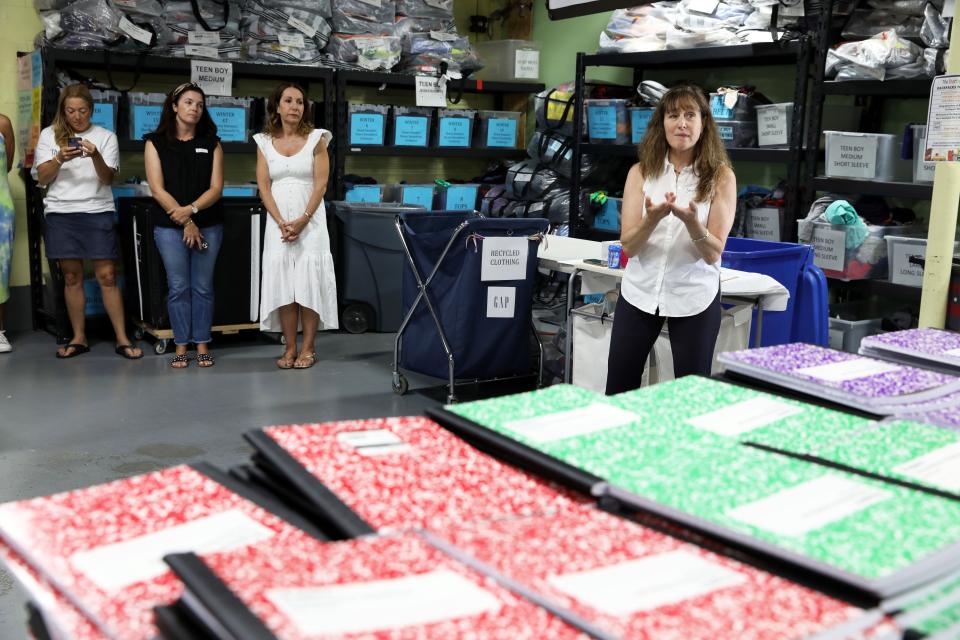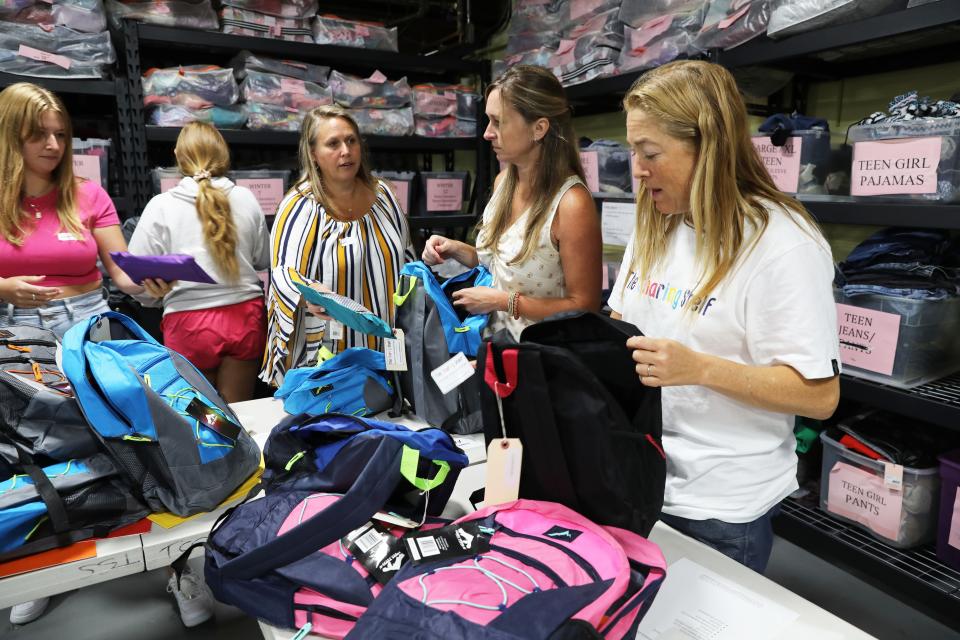We can meet the challenge of clothing insecurity for Westchester’s children
Across Westchester County, lower-income families are facing a growing challenge: clothing insecurity. They lack the financial means to provide their growing children and teens with seasonally appropriate basics like a winter coat or a backpack and other core essentials like a pair of sneakers or even socks and underwear.
As the founder and Executive Director of The Sharing Shelf, a Westchester-based nonprofit clothing bank for children, I see this growing challenge firsthand and daily. At The Sharing Shelf, we received more than 5,500 requests for clothing in 2023 from over 100 social-service agencies, schools, and other nonprofits. Demand has grown 300% in three years.

Clothing insecurity is an often-overlooked challenge that typically takes a back seat to food insecurity and housing insecurity. Yet clothing insecurity needs to be considered on par with the other two. Each walks hand-in-hand, and it’s time we lean in and address all three.
Children who are clothing insecure are more likely to be bullied by their peers and miss school, so they fall back academically. In high school years, they are more likely to drop out with lifelong social, emotional, health, and economic impacts. Yet studies show that school attendance and academic performance improve in children and teens provided with clean clothing. Appropriate clothing bolsters a child’s or teen’s self-esteem and motivation.
It’s not a small problem either. According to recent census data, 12.4% of Americans now live in poverty, and childhood poverty more than doubled from 2021 to 2022. The U.S. poverty level for a family of four is $30,000, or just $2,500 per month, so it’s easy to imagine how low-income families struggle to afford appropriate clothing for their growing children.
Westchester is not immune to these trends. While it is one of the wealthiest counties in the nation, the poverty rate for children under five increased from 9.5% to 11.7% between 2021 and 2022, according to the Westchester Children’s Association, and over 67,000 children and teens live in poverty or a low-income home.

Westchester residents can be part of the solution and help programs like The Sharing Shelf reduce clothing insecurity in our communities in several key ways:
First, when donating clothing, think about the child or teen who will wear that clothing and that individual’s needs. While the clothing may be secondhand, it should be style- and age-appropriate and in clean wearable condition, free of rips and stains from use. At The Sharing Shelf, we use an eco-friendly model, accepting donations of clean, quality used clothing in all sizes, from baby items through adult clothing. The children we assist need clothing that will allow them to fit in with their peers. The solution is not “something is better than nothing,” as inappropriate clothing may cause a child or teen to be ridiculed or bullied.
Second, when donating, look for a program like The Sharing Shelf that is committed to redistribution at no cost to those in financial need. Well-known organizations such as the Salvation Army, Goodwill, Vietnam Veterans, and GreenDrop — while admirable in other respects —– sell donated goods to fund their charitable work, which does not involve clothing poor people.
Third, donate seasonally appropriate clothing, when your items can best be reused. It’s tempting to clean your closet and donate clothing at the end of a season. However, clothing banks need seasonally appropriate items that can be turned around quickly. Even high-quality clothing becomes a burden if it takes up precious storage space.
All too often, we see summer clothes donated in September and winter coats in March, too late to keep a child warm through winter. Instead, donate clothing before it’s needed: Halloween costumes in September and prom dresses in March. When you’re clearing out clothes, bag your items, tuck them in a closet or your basement, and put a reminder in your phone.
Clothing insecurity is a challenge that we in Westchester can conquer. Generous donors of clothing are essential. Appropriately timing gifts of unwanted clothes will ensure that the most crucial needs can be met most efficiently.
Deborah Blatt is founder and executive director of The Sharing Shelf, a nonprofit clothing bank for children, in Port Chester, New York.
This article originally appeared on Rockland/Westchester Journal News: The challenge of clothing insecurity for Westchester’s children

